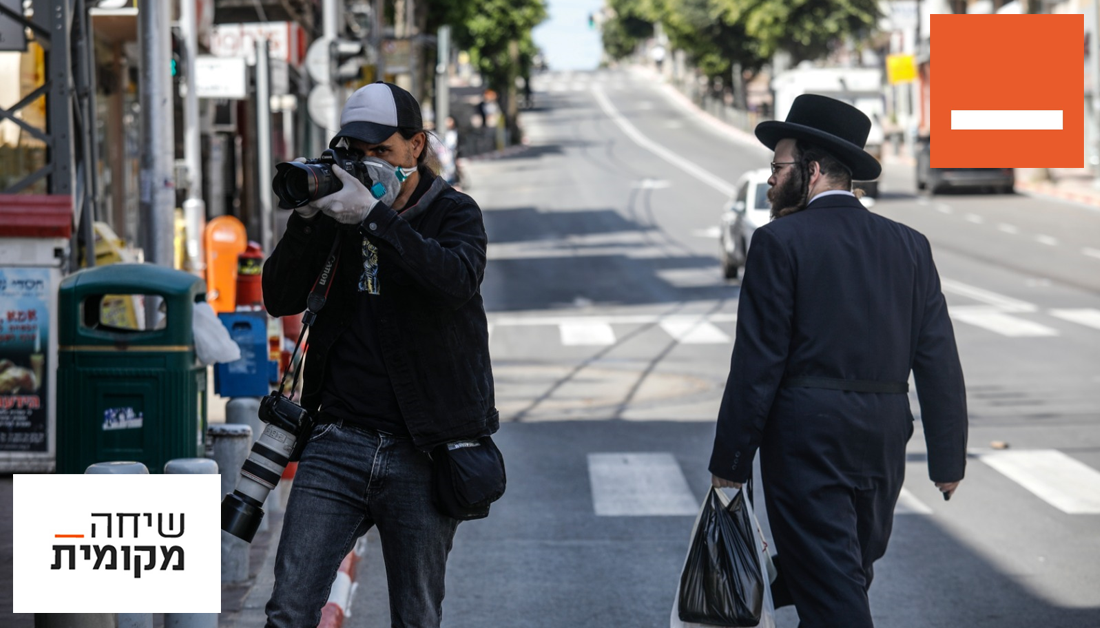Local Journalism Project Case Study: Local Call (Israel/Palestine)
The backstory:
Launched in 2014 by sister news site +972 Magazine, Local Call is a Hebrew-language news site that advances citizen journalism in Israel and Palestine and works to end the occupation of Palestine. The site was co-founded and is co-published by Just Vision, a nonprofit that highlights Palestinian and Israeli grassroots leaders working to end the occupation by peaceful means. Producing four to five stories a day, Local Call seeks to fill a gap in independent, uncensored media with an “unapologetic, human-rights-centric message” that reflects the truths of the occupation while Israeli political discourse shifts further right.
Audience:
With 700,000+ annual readers, Local Call serves Palestinian, Israeli, and international readers through Hebrew coverage of Israel and Palestine. Local Call fills a key gap in Hebrew-language reporting through being one of the only Hebrew-language news sites that covers the occupation, and has journalists on the ground. Some stories are also produced in English, which allows Local Call’s content to reach international audiences who are interested in what’s happening in Israel and Palestine.
Value proposition:
Local Call provides human-rights-centered coverage of communities, including of the occupation of Palestine, in Hebrew, bringing a unique anti-occupation voice to Hebrew-language media. The news site also focuses on issues important to a Hebrew-speaking local audience, including housing rights, organized crime, public health, and education.
Products and distribution:
Local Call produces daily content for its website and social media channels, including photography and videography, and also distributes a weekly newsletter.
The Team:
Local Call has eight staffers and a wide network of paid freelancers from diverse communities, including writers who are Israelis and Palestinians, Ashkenazi and Sephardi Jews, LGBTQ+, religious Orthodox, and secular immigrants from the former Soviet Union, who all share the common goal of respecting human rights and ending the occupation.
Business model:
Local Call’s content is free. Until launching its membership program in 2020, Local Call relied on institutional foundations and one-off, small-scale donations from readers and private donors. Now, Local Call has a membership program with a pay-what-you-can strategy and had more than 500 monthly supporters by the middle of 2021. Supporters make an average monthly contribution of 22 U.S. dollars. With membership, readers receive access to behind-the-scenes insight into stories and webinars.
Trust/misinformation:
Local Call builds trust by combating what it describes as a one-sided narrative in Hebrew political discourse on Israel and Palestine. It points to increasing political censorship in Israel and difficulty in accessing decision-makers and official government information. As other newspapers in Israel become more cautious as the government shifts toward the right, Local Call fearlessly reports the facts.
Ask them about:
Building a network of journalists that can bridge the Israel/Palestine divide; building a membership network to support mission-driven journalism.
In their words:
“Our very existence challenges and recognizes the failings of mainstream media… It could be through identifying the stories that are being misstold by bigger outlets… or covering stories they don’t talk about.”
“…The instability of this year has really pushed us to actually say we do need stability and other sources of income. And we need to explain to our readers that (membership) is the way to support us. This is the right way to make us sustainable and to make us the most independent, least reliant on foundations or very rich private donors.”
“Having our reporters on the ground allows us to deliver reliable information and counter false facts found on mainstream national media”
Source for information and views in this case study: Interview with Haggai Matar, co-director of Local Call and executive director of 972 – Advancement of Citizen Journalism, an Israeli nonprofit committed to human rights, democracy, social justice, and ending the Israeli occupation.
This story is part of IPI’s Local Journalism Project. The publication of these case studies – part of IPI’s wider work mapping, networking and supporting quality innovative media serving local communities – is supported by the Friedrich Naumann Foundation.



